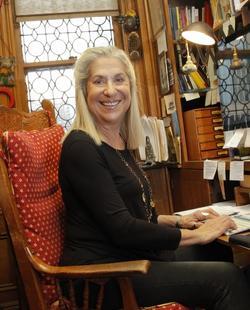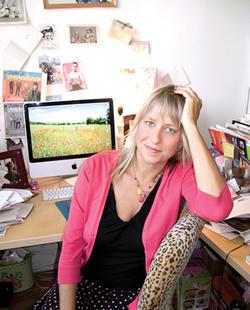Magazine Founders
If you ask Letty Cottin Pogrebin how she came to found Ms. Magazine, she might tell you a story of sitting with Gloria Steinem on a hotel room floor, wrapped in tablecloths and stapling packets for the 1972 National Women’s Political Caucus. Twenty-one years later, Debbie Stoller readied 500 copies of the first edition of BUST Magazine for circulation with a stapler and a dream. Turning DIY storytelling into nationally distributed media, Letty Cottin Pogrebin and Debbie Stoller encourage women to redefine their lives and transform society.
When Letty Cottin Pogrebin graduated from Brandeis University in 1959, all she wanted was “a husband and a set of sterling.” But she was single and needed to support herself, so she quickly became “a career girl,” working as a secretary at a New York publishing house.
Pogrebin wouldn’t stay at the bottom of the ladder for long. She quickly climbed the ranks to Vice President and was offered the opportunity to write her first book, How to Be a Woman in a Man’s World. It was only as she found herself confronted by angry “women’s libbers” during the book tour that Pogrebin learned about feminism and the blossoming Women’s Liberation Movement. Within a few short years, she would become one of the most influential, recognizable voices of second wave feminism.
Pogrebin jumped headfirst into the struggle for women’s liberation and was recruited by Betty Friedan to assist with the 1972 National Women’s Political Caucus. There, she met Gloria Steinem, who shared with her the idea of starting a magazine that would give voice to the women of the movement. From big cities to small towns, women shared their struggles and triumphs on Ms.’s pages, amplifying the impact of both local groups and national legislative action. “There were already things that were being published [about women’s experiences],” Pogrebin told JWA, “but by becoming the repository of all the information, pulling together and reporting on all that was already happening, [Ms.] helped to create the sense of ‘A Movement.’”
The diverse content and the personal nature of the pieces created opportunities for women everywhere—no matter how isolated or alone—to experience support and solidarity with their sisters. Early issues included articles on abortion, domestic violence, and juggling motherhood and career. Reflecting on how Ms. made change, Pogrebin described the experience of reading the magazine as the “the jack that lifted your consciousness up article by article.”
Since the founding of Ms., Pogrebin has written eleven books—including her most recent novel, Single Jewish Male Seeking Soul Mate—and led organizations including The Free to Be Foundation and Americans for Peace Now. She remains a prolific advocate for women and gender equality and continues to model the importance of weaving one’s multiple identities together—for example, Jewish and feminist—rather than choosing one over another.
Debbie Stoller thought of herself as a feminist from a young age, asking her mother to refer to her fifth grade classmates as “women,” not “girls.” In seventh grade, a teacher handed out Gloria Steinem’s article If Men Could Menstruate as assigned reading and something clicked in Stoller’s mind: she wanted to know more about sexism and how the system of gender discrimination took hold.
After taking women’s studies classes in college, Stoller completed a Masters’ degree in psychobiology and a PhD in the psychology of women, trying to understand how magazines and other elements of cultural production “screw with women’s heads.” While immersed in this work, Stoller realized she didn’t want to “go on teaching people about the negative impact pop culture has on women.” Instead, she wanted to create something new.
Starting in the typing pool at MTV and then moving up in the ranks at Nickelodeon, Stoller became deeply familiar with the making of media products. After five years, she felt ready to take the next step, but, as she told JWA, “It was the ‘90s, people didn’t form startups and get investors—people were slackers.” Inspired by the feminist girl mag of the ‘90s, Sassy, Stoller created a ‘zine that focused on pleasure and the fun of being a woman, and BUST was born: “a little bit aggressive, a little bit sexy, and kinda funny.”
BUST is a magazine about pop culture, feminism, and femininity. It reclaims traditionally “feminine” activities like cooking and crafting, while providing sharp commentary on entertainment, and celebrating feminist celebrities. In addition to radicalizing readers through pop cultural consumption, Stoller also created BUST as a feminist response to Maxim and other magazines that “make men feel awesome by having half-naked ladies” in them. Granting women readers that same access to titillation and power, BUST features the “One-Handed Read”—an erotic story at the end of every issue.
Where Ms. sought to carve a new place for women in a sexist world, BUST strives to reclaim cultural elements that have been devalued because of their association with women. Both Pogrebin and Stoller created new paths to women’s expression, political change, and cultural revolution, and they did it one page, one story, and one reader at a time.




